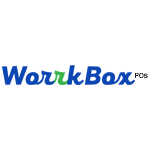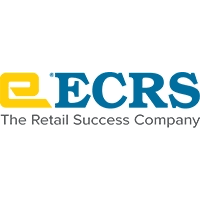Description

Aloha

WorrkBox-POS
Comprehensive Overview: Aloha vs WorrkBox-POS
Aloha POS and WorrkBox POS are both point-of-sale solutions designed to streamline operations for businesses, primarily in the hospitality and retail sectors. Here’s a comprehensive overview of each:
Aloha POS
a) Primary Functions and Target Markets
- Primary Functions:
- Aloha POS is designed to manage various operations within restaurants and hospitality businesses. Its core functions include order taking, payment processing, inventory management, employee scheduling, customer relationship management (CRM), and reporting analytics.
- The system supports both table service and quick-service models, offering flexibility for different restaurant sizes and formats.
- Target Markets:
- Its main target markets are medium to large-sized restaurants, hotel dining operations, and other hospitality venues striving for efficiency in order processing and management.
- It also caters to businesses requiring advanced data analytics and integrated functionalities, making it suitable for franchises and multi-location operations.
b) Market Share and User Base
- Market Share:
- Aloha POS is one of the more established products in the POS market, particularly in the restaurant sector, holding a significant portion of the market share.
- It's recognized for its reliability and comprehensive features, which have earned it a strong user base.
- User Base:
- The user base predominantly consists of well-established restaurants and hospitality entities, including many recognizable brands and franchise chains that require robust and reliable POS capabilities.
c) Key Differentiating Factors
- Integration and Scalability:
- Aloha offers extensive integration with various third-party applications and scalability to support businesses as they grow.
- Comprehensive Features:
- Its wide range of features, including advanced reporting and CRM tools, sets it apart for businesses needing in-depth operational insights.
- Reputation and Stability:
- Being an established player, Aloha is renowned for its system stability and comprehensive support services.
WorrkBox POS
a) Primary Functions and Target Markets
-
Primary Functions:
- WorrkBox POS focuses on providing a streamlined, user-friendly interface for order taking, payment processing, inventory control, and basic reporting functions.
- It aims to simplify point-of-sale operations with an emphasis on intuitive design and ease of use.
-
Target Markets:
- Targeted primarily at small to medium-sized businesses, including independent retailers and small restaurant operators who need affordable, easy-to-use POS systems.
b) Market Share and User Base
- Market Share:
- WorrkBox POS is a newer entrant compared to established systems like Aloha. As such, its market share is smaller but growing as it captures a niche market of small businesses seeking affordable solutions.
- User Base:
- WorrkBox attracts a user base primarily of small businesses that may be first-time POS system adopters or looking to transition from older, more cumbersome systems.
c) Key Differentiating Factors
- Affordability and Simplicity:
- WorrkBox POS’s major differentiators are its cost-effectiveness and simple user interface, making it accessible for small business operators with limited technical expertise.
- Ease of Implementation:
- With minimal setup and quick deployment, WorrkBox is ideal for businesses looking to get started without complex installation processes.
- Focus on Small Businesses:
- Unlike Aloha, WorrkBox is tailored for smaller operations, offering features that meet essential needs without overwhelming users with unnecessary complexity.
In summary, Aloha POS and WorrkBox POS serve different segments of the hospitality and retail markets, with Aloha focusing on larger operations with comprehensive solution needs, while WorrkBox caters to small businesses looking for simplicity and affordability.
Contact Info

Year founded :
2017
Not Available
Not Available
Spain
Not Available

Year founded :
Not Available
Not Available
Not Available
Not Available
Not Available
Feature Similarity Breakdown: Aloha, WorrkBox-POS
Aloha POS and WorrkBox-POS are both point-of-sale systems that cater to the needs of businesses in the hospitality and retail sectors. Here is a feature similarity breakdown that addresses your queries:
a) Core Features in Common:
-
Order Management: Both systems offer comprehensive order management capabilities, allowing businesses to take and process customer orders efficiently.
-
Inventory Management: Each platform provides tools to manage stock levels, track inventory in real-time, and receive notifications for low-stock items.
-
Payments Processing: They support multiple payment methods, including credit and debit cards, cash, and digital wallets, with secure and fast processing.
-
Reporting and Analytics: These systems come equipped with reporting tools that generate insights on sales performance, employee productivity, and inventory trends.
-
Customer Relationship Management (CRM): Both include features to help businesses store customer details, track purchase history, and manage loyalty programs.
-
Multi-location Support: Aloha and WorrkBox-POS support businesses with multiple locations, providing centralized management and data synchronization.
-
Employee Management: Basic scheduling, time clock, and performance monitoring tools are available in both platforms.
b) Comparison of User Interfaces:
-
Aloha POS: Known for its user-friendly interface streamlined for the hospitality industry, Aloha boasts intuitive navigation tailored for quick service environments. It generally uses touch screen menus with customizable layouts suited for various workflow requirements.
-
WorrkBox-POS: Offers a modern and flexible user interface designed to accommodate both retail and hospitality needs. Its interface is typically customizable, allowing businesses to tailor visual aspects to align with brand aesthetics and operational processes.
In general, both interfaces are designed to minimize complexity for the end user, but Aloha might be preferred for environments requiring rapid changes such as table service or high volume fast-food restaurants, while WorrkBox may offer better flexibility across diverse types of retail operations.
c) Unique Features:
-
Aloha POS:
- Advanced Restaurant Features: It often includes specialized features for restaurants, like kitchen display systems (KDS) and table management for floor plans.
- Offline Capabilities: Strong offline functionality ensuring continuous operation during internet outages.
- Third-party Integrations: A wide range of integrations with restaurant-focused tools like reservation systems or delivery platforms.
-
WorrkBox-POS:
- Cloud-Based Flexibility: Being cloud-first, WorrkBox offers seamless updates and easy access to data from any location.
- Customizable Permissions: Enhanced ability to customize user roles and permissions to fit various business models.
- Focus on Retail Features: Features specific to retail such as barcode printing and advanced customer loyalty programs might be more sophisticated.
While both platforms overlap in many core areas, Aloha is often recommended for businesses in the hospitality sector seeking robust restaurant-specific functionalities, whereas WorrkBox-POS might appeal more to retail operations looking for cloud-first, flexible solutions with extensive customization options.
Features

Not Available

Not Available
Best Fit Use Cases: Aloha, WorrkBox-POS
Aloha and WorrkBox-POS are both point-of-sale (POS) systems that cater to different types of businesses and use cases. Here's a detailed overview of the best fit use cases for each:
Aloha POS
a) Best Fit for Types of Businesses or Projects:
-
Restaurants and Food Services:
- Aloha is particularly strong in the hospitality and food service industries, with robust features tailored for quick-service, full-service, and fine-dining restaurants.
- Supports order management, table management, and kitchen support, making it ideal for complex restaurant operations.
-
Bars and Nightclubs:
- The system is designed to handle high-volume sales and fluctuating demand, which is typical in bars and nightlife venues.
-
Multi-location Chains:
- With support for scalability, Aloha is suitable for large chain restaurants needing consistent POS solutions across multiple sites.
- Centralized management tools make it easier for chains to track sales, inventory, and employee performance across locations.
-
Hospitality Settings:
- Hotels with in-house dining can benefit from Aloha’s integration capabilities with property management systems (PMS).
b) Scenarios Where Aloha is Preferred:
-
Integration with Existing Systems:
- Businesses looking for seamless integration with enterprise resource planning (ERP) systems, customer relationship management (CRM) tools, and loyalty programs.
-
Advanced Reporting Needs:
- Companies needing detailed analytics and reporting for operations, labor, and inventory management.
-
Complex Menu Management:
- Businesses that require intricate menu customization and promotion handling.
WorrkBox-POS
c) Best Fit for Types of Businesses or Projects:
-
Retail Stores:
- WorrkBox-POS is optimal for retail environments, offering features such as inventory management, customer tracking, and sales reporting.
-
Small to Medium Enterprises (SMEs):
- Ideal for smaller businesses due to its user-friendly interface and cost-effective pricing.
-
Pop-up Shops and Mobile Vendors:
- Its portable and flexible features make it suitable for temporary or mobile retail operations.
-
Service-based Industries:
- Suits businesses like salons and spas where booking and appointment management are crucial.
d) Scenarios Where WorrkBox-POS is Preferred:
-
Simplicity and Ease of Use:
- Businesses requiring straightforward implementation and minimal staff training.
-
Budget Constraints:
- Companies looking for an affordable solution without sacrificing essential features.
-
Adaptability to Various Retail Environments:
- Retailers needing a POS system that can adapt quickly to changes in inventory or pricing structures.
Catering to Different Industry Verticals or Company Sizes:
-
Aloha POS:
- Primarily targets medium to large hospitality businesses that require comprehensive features, scalability, and integration with other enterprise solutions.
- Its advanced capabilities make it a fit for businesses aiming for growth and those requiring complex operational support.
-
WorrkBox-POS:
- Appeals more to small to medium-sized enterprises across retail and service sectors.
- Offers a more cost-effective solution with core functionalities suited to less complex business needs.
- Its flexibility and ease of setup are beneficial for businesses with limited technical resources or those in need of rapid deployment.
Each system caters to its niche by offering specialized features that align with the operational demands of their targeted industries and business sizes.
Pricing

Pricing Not Available

Pricing Not Available
Metrics History
Metrics History
Comparing undefined across companies
Conclusion & Final Verdict: Aloha vs WorrkBox-POS
When comparing Aloha and WorrkBox-POS, both products have distinct strengths and weaknesses that may appeal to different types of users. Here's a comprehensive breakdown:
a) Best Overall Value:
To determine the best overall value, it’s essential to consider factors such as cost, features, ease of use, reliability, customer support, and scalability. Aloha is well-established in the market with a range of robust features for restaurants, making it suitable for businesses looking for a comprehensive and reliable POS system. On the other hand, WorrkBox-POS might offer more flexibility and modern interface designs that appeal to newer startups or businesses looking for customization at a potentially lower cost.
For established restaurants that need an industry-standard, feature-rich solution, Aloha might be the best investment. For smaller or newer businesses that need a cost-effective, adaptable, and potentially less complex system, WorrkBox-POS could provide better overall value.
b) Pros and Cons:
Aloha:
Pros:
- Comprehensive Features: Aloha is packed with features tailored for the hospitality industry, including inventory management, labor management, and extensive reporting tools.
- Reputation and Reliability: As a long-standing POS system, Aloha is reliable and trusted by many in the industry.
- Support and Training: Offers extensive support and training resources, beneficial for businesses new to advanced POS systems.
Cons:
- Cost: Generally more expensive than newer entrants like WorrkBox-POS.
- Complexity: Might be overkill for small operations due to its comprehensive feature set.
- Legacy System Concerns: Some users might find the interface outdated compared to newer systems.
WorrkBox-POS:
Pros:
- Affordability: Typically more budget-friendly, making it accessible for smaller businesses or startups.
- Flexibility and Modern Interface: Offers a straightforward, modern interface that is easy to learn and navigate.
- Customization: Provides options for customization that can tailor the system to specific business needs.
Cons:
- Limited Features for Larger Operations: May not have as many advanced features as Aloha, which could limit its use for larger enterprises.
- Less Established: Being newer in the market, WorrkBox-POS might have less of a track record for reliability and support.
- Expansion Challenges: Might face scalability issues as a business grows rapidly.
c) Recommendations:
For Users Deciding Between Aloha and WorrkBox-POS:
-
Assess Your Business Needs: Consider the size and complexity of your operation. Aloha is ideal for larger and more established businesses that can utilize a wide array of features, while WorrkBox-POS suits small to medium-sized businesses looking for simplicity and cost-effectiveness.
-
Consider Budget Constraints: Evaluate your budget for initial setup and ongoing costs. Aloha might require a higher investment, while WorrkBox-POS might offer a lower cost of entry without compromising essential features.
-
Evaluate Growth Potential: Think about your business’s growth plans. If you anticipate rapid growth and expanding needs, Aloha might offer more scalable solutions.
-
User Experience and Support: Factor in the ease of use and the kind of customer support you expect. Aloha has robust support systems, while WorrkBox-POS might offer a more intuitive user interface with online support options.
Ultimately, the best choice will align with your specific business goals, operational needs, and budgetary constraints while taking into consideration the support and development potential of the chosen platform.
Add to compare
Add similar companies



